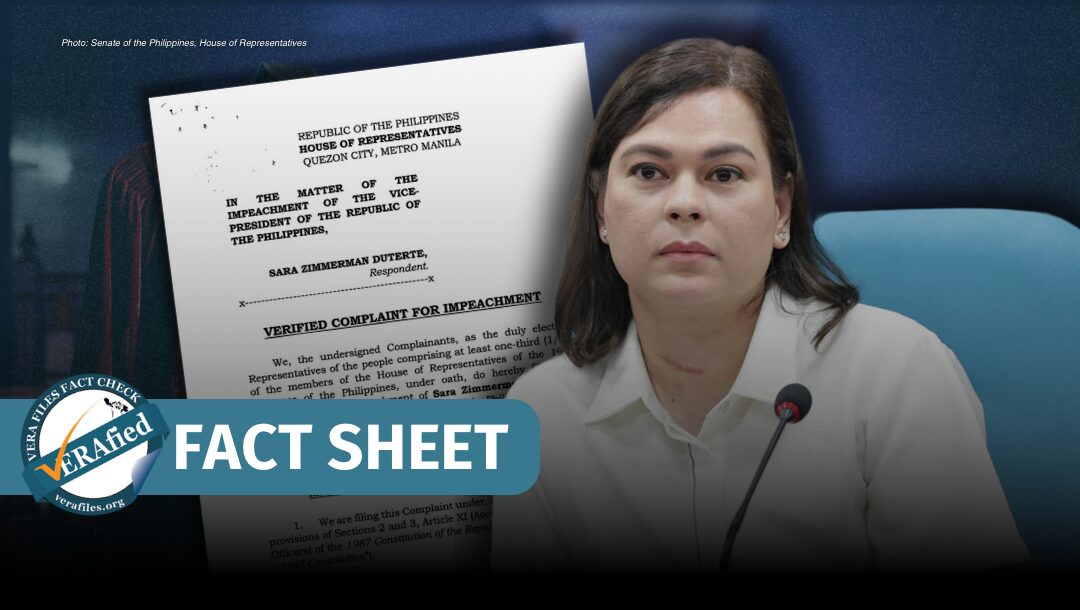When Congress Ends, So Must the Case: Why Impeachment Dies Without Trial Before Adjournment
By Atty. Arnedo S. Valera
A growing theory has emerged asserting that once the Senate receives and reads into the record the Articles of Impeachment, jurisdiction attaches and survives beyond the lifespan of Congress. It further claims that the Senate's power to try impeachment is not legislative, but a constituent power, and therefore immune from the rule that pending business lapses at the end of a congressional term. Proponents argue that since the Constitution uses the word “forthwith,” the Senate is compelled to proceed with the trial at any point—even in a future Congress.
With utmost respect, this view—while well-intentioned—is flawed. It departs from sound constitutional interpretation, legislative practice, and jurisprudence. The principle of functional dismissal provides the more constitutionally faithful and democratic resolution: if the Senate does not commence trial before the adjournment sine die of the Congress in which the Articles were received, the impeachment proceeding must be deemed dismissed.
I. Impeachment is Tied to the Life of Congress
Impeachment, though quasi-judicial in nature, is a political process embedded within the institutional life of a particular Congress. The Senate can only act as an impeachment court upon convening itself as such during its active term. Once that Congress ends, the authority to continue any untried impeachment lapses.
In Arroyo v. De Venecia (G.R. No. 127255, August 14, 1997), the Supreme Court affirmed that unfinished legislative business lapses with the end of Congress, unless the Constitution expressly states otherwise. Impeachment resolutions transmitted from the House fall squarely within this principle. There is no constitutional language authorizing their automatic carry-over to a succeeding Congress.
Further, the Senate acts as a body—not as a collection of individual Senators. That institutional identity expires with the term of Congress. A new Senate, composed differently and operating under a new mandate, cannot be compelled to inherit jurisdiction from its predecessor.
II. “Forthwith” Imposes Urgency, Not Permanence
The Constitution, under Article XI, Section 3(6), provides: “The Senate shall have the sole power to try and decide all cases of impeachment. When sitting for that purpose, the Senators shall be on oath or affirmation. The trial shall forthwith proceed.”
The phrase “forthwith proceed” is a constitutional directive for immediacy. It means without unreasonable delay. It does not mean the case may remain dormant until a new Senate chooses to revive it. If the Senate fails to commence trial within the lifespan of the Congress in which it received the Articles, the duty to proceed has already been breached—and the case, by constitutional operation, lapses.
In Bautista v. Salonga, 180 SCRA 74 (1989), the Supreme Court highlighted the principle that time-bound constitutional duties cannot be postponed indefinitely without violating due process and institutional accountability.
III. Jurisdiction Cannot Be Transferred Across Congresses
A common argument is that since impeachment is not a legislative but a constituent power, it may transcend the rules that apply to ordinary legislation. This, however, misunderstands the nature of constituent powers in the Philippine constitutional system.
Impeachment is a political proceeding subject to constitutional form, rules, and institutional timing. As stated in Francisco v. House of Representatives (G.R. No. 160261, November 10, 2003), the Supreme Court emphasized the strict compliance required in all impeachment processes, ruling that procedural safeguards and limitations are constitutional in character and not mere technicalities.
Thus, once the 19th Congress adjourns without commencing trial, the impeachment proceeding ends. The new Senate of the 20th Congress is not merely a continuation of the former but a legally distinct body, governed by a new composition, different rules, and an autonomous political mandate.
IV. Collegiality and the Doctrine of Finality
Some assert that holdover Senators from the previous Congress can move for reconsideration in the new Congress if they voted with the majority that dismissed the case. This presupposes that institutional jurisdiction survives across legislative transitions. It does not.
In Araullo v. Aquino III (G.R. No. 209287, July 1, 2014), the Supreme Court reaffirmed that powers exercised by Congress must be done collectively and collegially, not by individual members acting across terms. The decision of one Congress cannot bind the next—especially on matters involving the exercise of quasi-judicial authority.
The correct constitutional response to a failure to proceed with trial before June 30, 2025, is not revival or reconsideration, but recognition of dismissal due to inaction.
V. Functional Dismissal is Constitutionally Required
The constitutional phrase "forthwith proceed" is not a license for perpetual jurisdiction. It demands prompt action within a defined institutional period. If the Senate fails to act before the expiration of its term, it has breached that constitutional duty. The only legally faithful conclusion is functional dismissal.
Attempts to carry over impeachment proceedings into a new Congress would undermine both constitutional discipline and legislative independence. They would distort the delicate balance of accountability, due process, and finality in our constitutional design.
The impeachment process, like all powers under the Constitution, must operate within limits—limits that include time, composition, and institutional legitimacy. When Congress ends, so must the case.
Atty. Arnedo S. Valera is the executive director of the Global Migrant Heritage Foundation and managing attorney at Valera & Associates, a US immigration and anti-discrimination law firm for over 32 years. He holds a master’s degree in International Affairs and International Law and Human Rights from Columbia University and was trained at the International Institute of Human Rights in Strasbourg, France. He obtained his Bachelor of Laws from Ateneo de Manila University. He is an AB-Philosophy Major at the University of Santo Tomas ( UST). He is a professor at San Beda Graduate School of Law (LLM Program), teaching International Security and Alliances.

Comments
Post a Comment